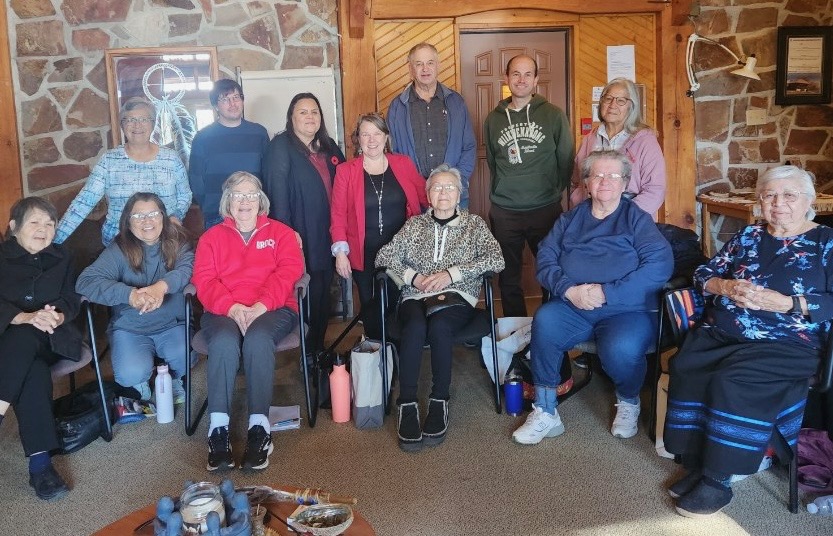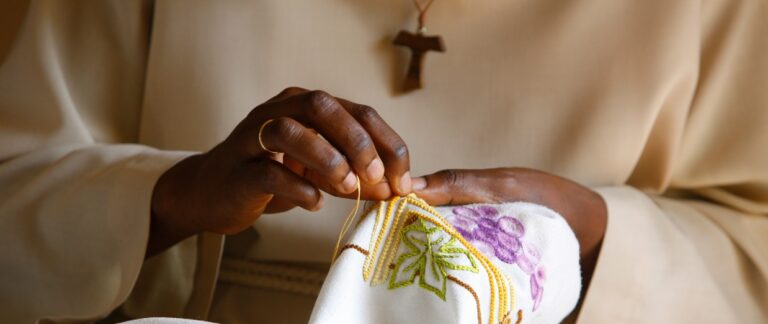
A CANADIAN HIDDEN TREASURE: THE DIOCESAN ORDER OF SERVICE
From time to time, you agree to do something rather ordinary and find yourself encountering something quite extraordinary. That was my experience last fall when I agreed to do a workshop on Women in the Hebrew Scriptures for a group of women in Espanola. The group to whom I was presenting included a few members of the Diocesan Order of Service and some others in formation. Despite my being involved in church ministry for more than 30 years, I have never heard anything about this unique and important group.
I have long known how vital the healing, teaching and leading service of women is to the Church. This was confirmed in a new way in 2019 during the Pan-Amazonian Synod when I learned of the essential work done by the Indigenous women ministering to the 34 million inhabitants of the vast geographic region. What I was unaware of then, was that something very similar has been transpiring in our Canadian context.
The Diocesan Order of Service began in 1975 in the Diocese of Sault Ste. Marie, Ontario. It grew originally from the Indigenous traditional diaconate program. At the time, the wives of deacons, who worked alongside their husbands, were organized as the Diocesan Order of Women under the leadership of Bishop Alexander Carter. As fewer and fewer men were coming forward for diaconal service, increasing numbers of women were taking on more expansive roles. Thus, the revised Diocesan Order of Service was born. Under the leadership of Bishop Jean Louis Plouffe, it was extended to both women and men, though the majority of members are women.
When it first began, members of the Diocesan Order of Service (DOS), including the Diocesan Order of Women typically served as lectors and acolytes in parishes. Today, with around 20 participants, they continue to do this. Those who have been mandated DOS engage in catechetical ministries, preside at communion services, share reflections on the Scriptures, lead wake and funeral services and minister to the sick. What is unique about the DOS, however, is not only that it is primarily the service of women but that they are entrusted with the task of inculturation of the faith in the 7 Indigenous reserve communities of Manitoulin Island and the North Shore of Northern Ontario. DOS members enrich liturgical celebrations, meetings and prayers with the rituals, language, sensitivities, practices and ways of knowing from their traditional Anishinaabe heritage.

Formation for this program is robust and is fully supported by local Bishop Thomas Dowd and is currently under review. It includes a 4-year program which the Board has assigned a Damigoong Bimikaadwining (Calling to Service) Planning Team. At the end of the 4 years, members are formally commissioned by the bishop and mandated to serve. Ongoing formation takes the shape of regular monthly meetings. Friday nights begin with lighting a candle in place of a sacred fire and sitting in a circle. Thoughtfully and prayerfully, members share their experiences of ministry, insights and theological reflections. This is an instance of embodied synodality for sure. Saturday involves theological and pastoral formation, communal meals, prayer and Eucharist. The Jesuits, especially through Regis College in Toronto, have been an important source of support for this formation.
When I visited last fall two of the members of the program – Rosella Kinoshameg and Mary O’Donnell – had just returned from Rome, where they had travelled as part of a delegation to speak to Pope Francis about the essential work that has been going on in the diocese now for almost 50 years.
The work of the recent Synod on Synodality has precipitated renewed discussion of the ministries of women in the Church, particularly as it pertains to the diaconate. This week (February 3-7), the members of the Second Commission on Women and the Diaconate are meeting at the Vatican. They will study and consider the topic of women and the diaconate in light of church history, theology and current church context. It is a time when our church is asking questions about what role women have played in our history, what role they have played in our own spiritual and religious lives and what roles might they play as we move forward to preach the Gospel credibly and competently in the coming years. The Diocesan Order of Service has much to reveal to us in our discernment.
Christine Way Skinner is a doctoral student at Regis St. Michael’s at the Toronto School of Theology and has been a lay pastoral minister for more than 30 years. Together with her husband, Michael, she has parented 6 wonderful children. She has written a number of books for Novalis on living the Catholic faith for both adults and children.


